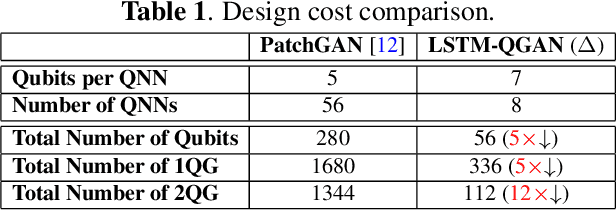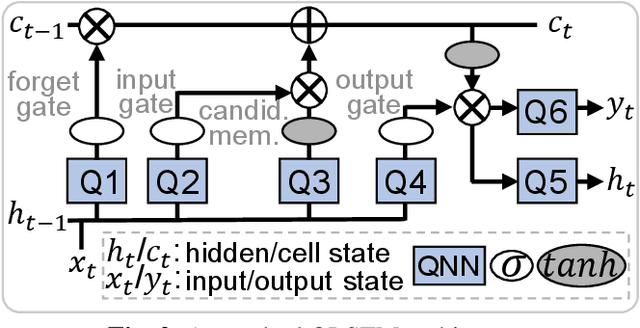LSTM-QGAN: Scalable NISQ Generative Adversarial Network
Paper and Code
Sep 03, 2024



Current quantum generative adversarial networks (QGANs) still struggle with practical-sized data. First, many QGANs use principal component analysis (PCA) for dimension reduction, which, as our studies reveal, can diminish the QGAN's effectiveness. Second, methods that segment inputs into smaller patches processed by multiple generators face scalability issues. In this work, we propose LSTM-QGAN, a QGAN architecture that eliminates PCA preprocessing and integrates quantum long short-term memory (QLSTM) to ensure scalable performance. Our experiments show that LSTM-QGAN significantly enhances both performance and scalability over state-of-the-art QGAN models, with visual data improvements, reduced Frechet Inception Distance scores, and reductions of 5x in qubit counts, 5x in single-qubit gates, and 12x in two-qubit gates.
 Add to Chrome
Add to Chrome Add to Firefox
Add to Firefox Add to Edge
Add to Edge